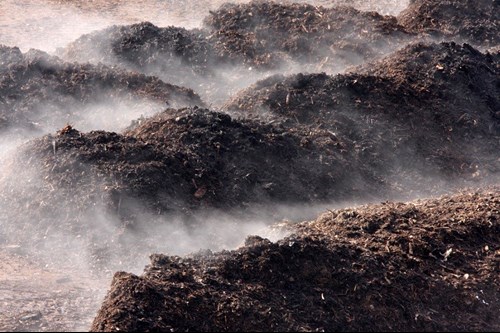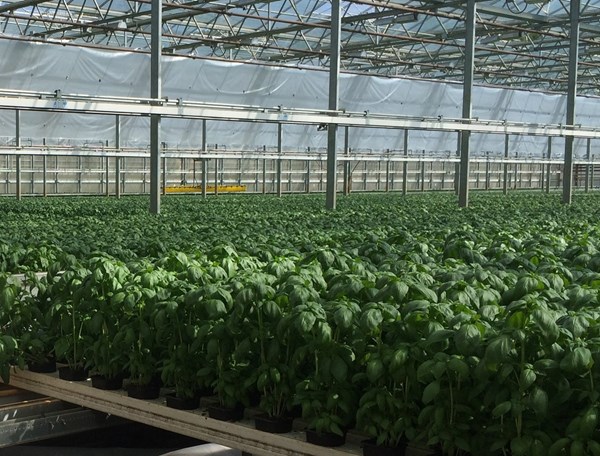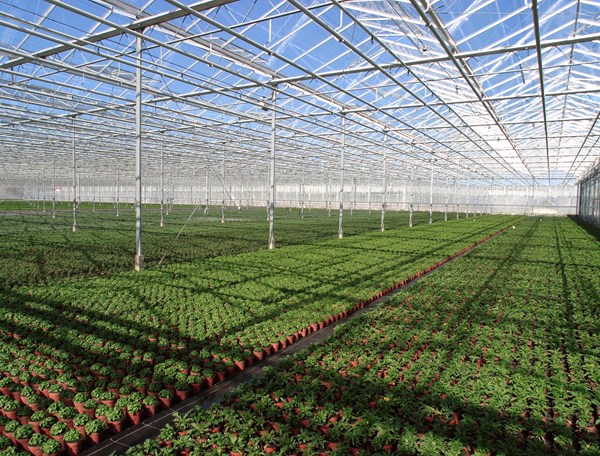Training Center
Why Compost is Not a Good Choice for Professional Growing Media
Thursday, September 7, 2023 | Jose Chen Lopez
The avid gardener will tell you that the best soil amendment for vegetable gardens and flower beds is compost. Compost is an excellent source of nutrients and organic matter that can help in breaking-up heavy clay soils or improve water retention of sandy soils. The logical next question then is “Why isn’t compost a common component in professional growing media?” One answer is that the most important quality of a professional growing medium is that it must be consistent from batch to batch and year to year. This consistency comes in two primary characteristics: physical properties and chemical properties. Unfortunately, the chemical and physical properties of compost can be quite variable.

Compost piles being prepared for use. Photo Credit: fashions-cloud.com
Physical Properties
Since compost is composed of decayed organic matter which can vary from basic yard waste to animal waste, it is almost impossible to make two batches of compost that are identical. Even if the only component in the compost is yard waste, the physical and chemical properties will vary based on the quantity of individual inputs and the composting time. Think of compost as a snowflake, no two batches are identical. Perhaps the most undesirable physical property that makes compost a poor choice for use in growing media is the particle size. Compost is made by allowing organic matter to decompose; the end product should have the appearance of dark humus. This small particle size can result in a growing medium that is heavy, with poor drainage and low air porosity resulting in poor plant growth.
Chemical Properties
Even less predictable than the physical features of compost are the chemical properties. Compost often has high levels of soluble salts that can cause burning of young or sensitive crops. The nutrient levels in composted components can vary greatly even if the inputs are consistent. For example, lawn clippings are often a source of composted material, but they will have huge variations in nutrient levels based on yard maintenance and the time of year. Additionally, while compost is an excellent source of nutrients (nitrogen in particular), nutrient release is difficult to predict. Also, if the composting process has not been completed before incorporating into a growing medium, it can actually tie-up applied nitrogen causing nitrogen deficiency in plants.
Nutrient Availability
A final disadvantage of using compost in professional growing media is that microbial activity in the compost changes the nutrient levels in the growing medium over time. Nutrients are released as the compost is broken down, therefore as time passes and/or as temperature increases, nutrients can build up in the unused growing medium. This impacts growers who purchase their growing media for the entire year all at one time.
In conclusion, while using compost in the garden and landscape provides an ideal source of organic matter and nutrients, it causes a number of difficulties when incorporated into professional growing medium. These difficulties include inconsistent physical properties, poor drainage, low air porosity and unpredictable nutrient release and availability. All considered, it is best to avoid using compost in professional growing media.
For more information on using compost in professional growing medium, please contact your Premier Tech Grower Services Representative.
 |
 |
 |
 |
|---|---|---|---|
|
Ed Bloodnick |
Nathan Wallace-Springer |
Lance Lawson |
Victor Brantly |
 |
 |
 |
|
|
Troy Buechel |
Susan Parent |
Jose Chen Lopez |
PRO-MIX® is a registered trademark of PREMIER HORTICULTURE Ltd.
Related Articles
-
Best Growing Practices for Organic Greenhouse Crops
A good quality organic growing medium has the same basic components as conventional substrates: a balance of good air porosity, good, but not excessive, water retention, a source of plants nutrients for initial growth, and a pH adapted to plants’ needs.
-
10 Must-Know Growing Media Facts
When potting in a greenhouse, the growing media used can have a major influence on crops. There are some common questions or issues growers have concerning their soil. Here is a summary of 10 must-know regarding growing media in the industry.

 Where to find our products
Where to find our products



